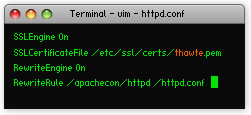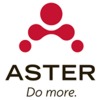Schedule-at-a-Glance
Take a look at the detailed Schedule Grid of Trainings and Sessions.
ApacheCon features a full array of activities throughout the week. FREE events include evening MeetUps and a 2-day BarCamp and Hackathon. For an overview of our main session tracks, read on below.
| Track 1 | Track 2 | Track 3 | Track 4 | Track 5 | |
| Wednesday |
Business |
Tomcat |
Content Technology |
Hadoop |
Tuscany & Synapse |
| Thursday | Community |
HTTPD |
Content Technology |
Lucene |
Web Services |
| Friday | OFBiz |
HTTPD |
Geronimo & Directory |
Lucene |
Felix (OSGi) |
HTTPD - the Apache Web Server
The Apache Web Server is where it all started, and, although now just one among many, it's still a critical part of your web infrastructure. But far from being just uninteresting plumbing, it has continued to develop new and exciting features over its entire 15 year history.
httpd.conf is a two-day conference-within-a-conference, jam-packed with great content. In addition to covering the plumbing aspects of the server, we'll also show you what's new in 2.2, and what's coming in the 2.4 release - SNI, dynamic configuration files, and load balancing. And in our developers' track we'll show you how to take the next step into writing your own modules. This two-day track is being sponsored by thawte
--------------------------------------------------------------
Apache Tomcat
Even as we celebrate our 10th anniversary as an Apache project, the Apache Tomcat community continue to innovate. This track will give you all you need to know about the latest features, and help you to make the most of Tomcat - either standalone or together with a front-end server. We'll explain a little of our 10 year history, the versions we support, the project structure and how the development takes place. We will, of course, also present the new features of the next version of Tomcat, Tomcat 7, for all our users.
Later on, we'll look deeper in the Tomcat internals, starting with a session on the new asynchronous servlet processing features provided in Tomcat 7. Our technical sessions will teach you how to get the best out of Tomcat's features, and become a real "Tomcat super user". And if you've already got that, we'll also go through integrating Tomcat with a front-end server, to build a cluster of Tomcats! The Tomcat track is sponsored by SpringSource
--------------------------------------------------------------
Business & Community Track
The ninth series of the ApacheCon Business and Community Track will take place on Wednesday and Thursday, 4-5 November, with dedicated presentations by developers, business leaders, industry luminaries, academics, and enterprise employees. A diverse range of topics, including Open Source commerce, marketing, licensing, community, development, and documentation issues, are aimed at business professionals, and will be beneficial to developers, technologists, and hackers alike.
--------------------------------------------------------------
Apache Lucene & friends
Apache Lucene is a robust and powerful, open source, search library that powers search and discovery in thousands of websites and applications ranging from large corporations like Apple Computer to startups creating next generation intelligent applications.
Over the years, Lucene has grown beyond just a pure Java library into a complete ecosystem of tools designed to help developers and businesses solve critical information access problems. Whether it’s leveraging the power and simplicity of Apache Solr’s search and faceting capabilities or the large scale crawling features of Nutch, chances are Lucene has a solution to meet your needs. Moreover, with the recent additions of Apache Tika (content extraction), Apache Mahout (machine learning) and Apache Droids (crawling framework), as well as ports of Lucene to languages like C, Python and .NET, it has never been easier to build search capabilities into any application, no matter the scale.
The Lucene Track at ApacheCon will feature a full slate of training, talks and networking on the entire Lucene ecosystem. A wide range of talks will cover both the technical details and the business aspects of Lucene. Networking events will help connect you with the creators of all the Lucene projects as well as other users.
--------------------------------------------------------------
Apache Felix & OSGi
OSGi technology is the foremost solution for developing large, modular, dynamic software systems in Java. The Apache Felix project hosts state-of-the-art implementations of the OSGi specifications, including the framework and many services, as well other related tools.
This track is dedicated to OSGi technology and the efforts around it at Apache. If you're looking for comprehensive information or practical tips on OSGi, this is the place to be! Get the details, from the engineers implementing the technology.
--------------------------------------------------------------
Apache Tuscany & Synapse
This track will take a look at the design and architecture of Apache Tuscany's SCA Runtime. Based on OSGi, and various aspects of building applications with Service Component Architecture (SCA), this will give you everything you need to understand the state-of-the-art implementation being developed at the Apache Software Foundation.
These talks are intended for anyone interested in learning more about SCA. From technology enthusiasts and developers using Tuscany, to the CTO who wants to know how it can help with implementing more flexible Enterprise Solutions!
--------------------------------------------------------------
Content Technologies
Are you looking for software for modern web publishing and content management? The content technology track covers web-based Apache projects ranging from content applications to web frameworks, protocol libraries and unstructured content storage solutions.
Targeted mainly to server side web developers, this track presents the latest Apache software in this space, and gives the attendees a chance to meet the developers for in-depth discussions and hands-on examples.
--------------------------------------------------------------
Web Services
The Apache Web Services Project is a constellation of software built around XML-based integration and the "WS-*" set of standards (SOAP, WSDL, WS-Security, etc). It includes everything from the popular Axis2 SOAP stack to libraries to help you process WS-Policy, XML Schema, and Web Service Security. This track will introduce all the sub-projects, provide end-user case studies, and give you a chance to interact directly with the developers. Whether you have specific questions or just need deeper knowledge of the Apache WS stack, the Web Services track is the place to be.
--------------------------------------------------------------
Geronimo & Directory
Apache Geronimo is a lightweight, flexible, component-based server for building dynamic application server environments. Geronimo plugins can be assembled into a fully compliant Java EE Server. However, it can be easily assembled into a server providing a subset of functionality or a minimal subset required to meet the requirements of a set of applications. In addition to the Apache Geronimo Server, the Geronimo project is also comprised of a number of subprojects: Development Tools, XBean, Yoko, GShell, Specs, etc.
The Apache Directory Project provides directory solutions entirely written in Java. These include a directory server, which has been certified as LDAP v3 compliant by the Open Group (Apache Directory Server), and Eclipse-based directory tools (Apache Directory Studio).
--------------------------------------------------------------
Apache Hadoop
Apache Hadoop is a framework for running applications on large clusters built of commodity hardware. A wide variety of companies and organizations use Hadoop to deliver petabyte scale computing and storage using off-the-shelf equipment. The Hadoop framework transparently provides applications both reliability and data motion.
Hadoop implements a computational paradigm named Map/Reduce, where the application is divided into many small fragments of work, each of which may be executed or reexecuted on any node in the cluster. In addition, it provides a distributed file system (HDFS) that stores data on the compute nodes, providing very high aggregate bandwidth across the cluster. Both Map/Reduce and the distributed file system are designed so that node failures are automatically handled by the framework.
With presentations delivered by leaders in the Hadoop Community, this track will help you get the most out of Hadoop installations and the Map-Reduce applications.





















